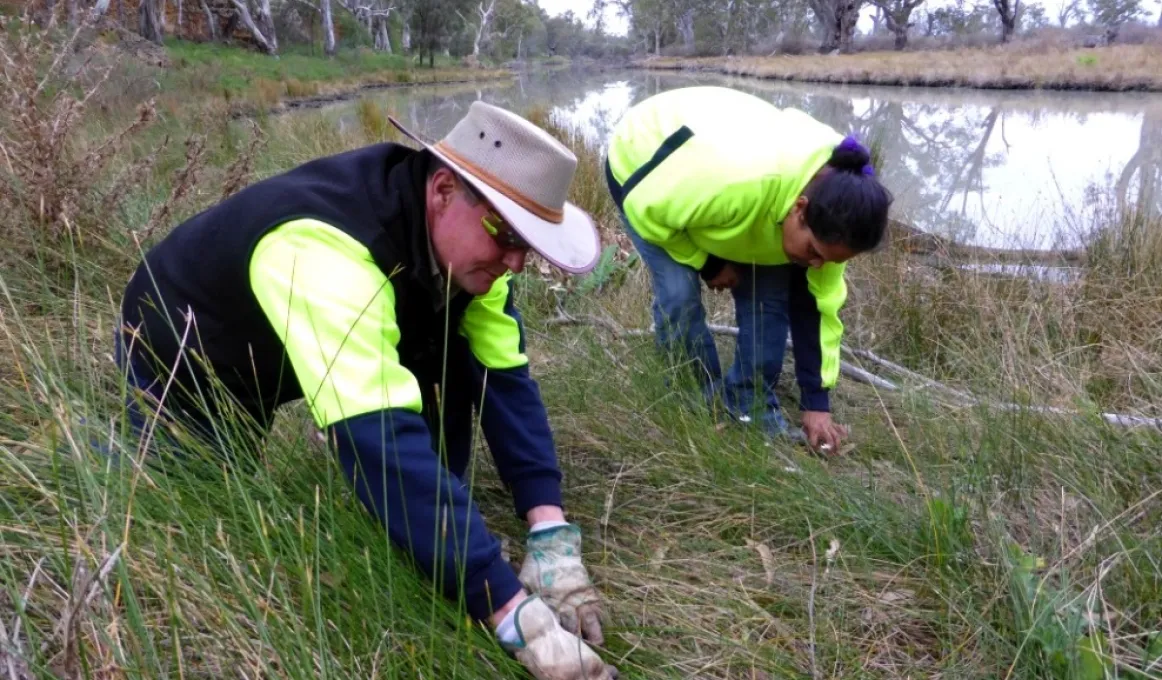Aboriginal rangers weeding out the weeds

Aboriginal rangers in the Murray-Darling Basin are a key to keeping the environment in good shape and are undertaking training in bush regeneration.
Aboriginal and Torres Strait Islander people are a key to keeping the Australian environment in good shape. Many are traditional owners and know their land better than anyone, but when it comes to dealing with introduced weeds, even they need training.
As Chris Koolmatrie, a Ngarrindjeri man and the Aboriginal Partnerships Project Officer for Natural Resources South Australian Murray-Darling Basin explains, eradicating weeds is a complex procedure.
“You can’t just rip weeds out of the ground with a hoe,” Chris said.
“If you disturb the ground you leave it open for other weeds to grow. Instead we look to control weeds through bush regeneration, which involves making minimal disturbance to existing native plants and soil through techniques like hand weeding, cutting and swabbing spot spraying and slashing.
“We have traditional knowledge and a deep understanding of our environment but weeds are new to us so we need training,” he said.
Recent Australian Government funded bush regeneration workshops were held throughout the Murray-Darling Basin region of South Australia, giving local Aboriginal Learning on Country and Working on Country teams the opportunity to learn bush regeneration strategies, including a field session on the practical use of bush regeneration techniques.
Chris says that the training is having a range of positive outcomes for the workers.
“Local Aboriginal people are taking a real interest in training. They are starting to see the benefits of the environmental programmes we’re running and want to get involved. It’s leading to some really positive environmental and social outcomes,” Chris said.
“I mentor workers and help them adjust to work as some haven’t worked before. We tell them what they need to know and then guide them through the training.
“There has been a lot of interest in the bush regeneration training and people are using the knowledge and skills gained to keep their beautiful traditional lands as pristine as possible and that’s great news for all Australians,” he said.
Find out more
The Working on Country programme was established to create real employment opportunities for Indigenous people. While helping to meet the Government’s environmental responsibilities, it also builds on Indigenous people's traditional knowledge and obligations to protect and manage their land, sea and culture.
The bush regeneration workshops were supported by the South Australian Murray-Darling Basin NRM Board through funding from the Australian Government's National Landcare Programme.